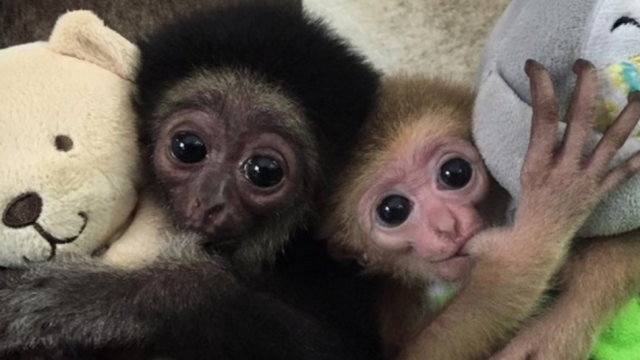
When a new research revealed that genetically altered monkeys can advance the understanding of brain development, which could lead to new treatments for autism and other developmental disorders, scientists in China decided to add some human genes to monkeys, with hope to gain a better understanding of how human brains develop and come up with possible solutions.
Little did they know that they triggered an ethical debate over research that some say draws a thin line between humans and animals.
The scientists based at the Chinese Academy of Science’s Kunming Institute of Zoology wanted to understand How does our DNA lay out the blueprint for humans’ powerful brains? Specifically wanting to understand the role of microcephalin MCPH1 gene in human brain development which is responsible for regulating brain size during developments.
Since the human and monkey versions of MCPH1 are slightly different, scientists think the gene may be partly responsible for humans’ high intelligence. In the study, the scientists added the human version of MCPH1 to 11 embryos that would become dirty-blond monkeys that share about 93 per cent of their DNA with humans. The so-called transgenic embryos were then implanted in the wombs of female monkeys.
The outcome left many wondering whether the MCPH1 monkeys were one step closer to something like consciousness. The transgenic monkeys behaved much like their unaltered counterparts, and their brains were roughly the same size with a super-slow maturation of the human brain that is thought to be linked to our human high intelligence.
But critics of the research including some of the scientists said the scientific gains don’t justify the creation of monkeys that could be compared to human-like intelligence.
“My personal opinion is now that, from an ethical point of view, such research should actually not be done,” said a member of the team of scientists
Arthur Caplan, a bioethicist at NYU School of Medicine noted, “I do not think all animal/human genetic hybrid experiments are unethical. Inserting human genes into monkey brains is a different matter. The study runs the risk of creating something not human, but not quite a monkey.”
